【報告】 ANU-PKU-UTokyo Winter Institute 2018 (5)
The fourth day had presentations by participants. The report is divided into two parts. The second half of the presentation outlines are as follows.
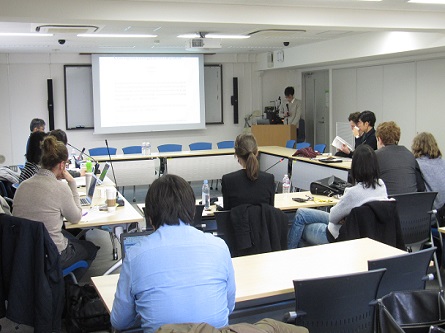
The 5th presentation is by Teng Hu from the perspective of the intellectual history of East Asia. First, by reviewing comparative research methods for East Asian Studies since the 1880s, he pointed out that the presence of East Asia as a practical approach sometimes makes “otherness" incorporated into a kinds of objects fiction. Then he compared the thoughts of the Confucianists in Qing Dynasty of China and Edo period of Japan with the “Feelings(Qing)” as a clue and reexamined the attempt of the people to construct the otherness.
Then Erin Kitagawara gave her representation titled “Co-existance and medicine” . It is generally accepted that medical practice creates a boundary between healthy people and patients. Her case of syphilis, AIDS and haemophilia in modern Japan shows how these foreign diseases shaped the borders of "us" and "them" during the contacts with Western countries. She hopes that by introducing the concept of coexistence, it would open up possibilities for new medical research.
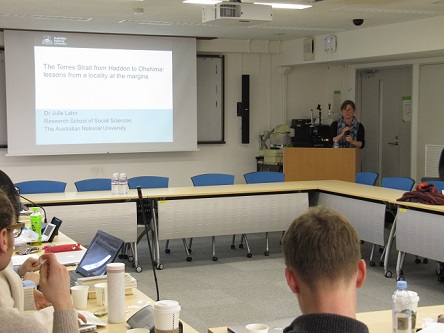
The first representation in the afternoon was based on anthropological fieldwork conducted in the Torres Strait. Julie Lahn recalled previous studies on the the Islanders by Haddon, an ethnological approach and Ohshima, a geographical approach. As a conclusion, Julie called for greater accountability and “deep listening” as key aspects of a more critical approach to thickly contextual, area-oriented research, one that incorporates what might be termed “epistemological humility” within its theoretical interests and ambitions.
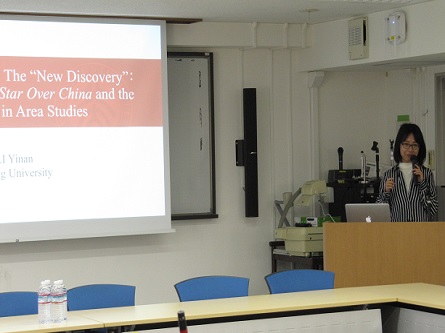
Yinan Li gave us a report centered on Edgar Snow's "Red Star Over China”. She showed several different versions of the book, analyzed the differences between the cover design and the Chinese translation, which shows people's different understanding of the book in different times and environments. She then reviewed Snow's visit to Yan’an, emphasizing his special status: the first Western journalist to visit Yan'an, which is of great importance to his book. Li focused on the role of literature and visual narrative form in area studies, it could be a representation of the trans-regional praxis.
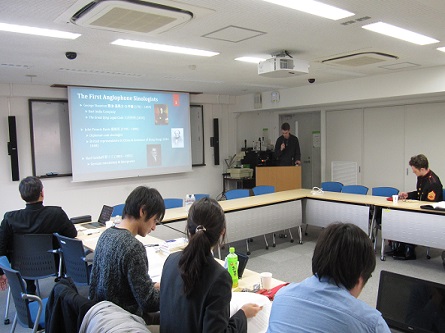
Next representation by William Peyton is entitled “The Category of ‘Asiatic’ in early Anglophone Sinology”. Looking at the writings of John Davis and Karl Gutzlaff, he introduced how China was framed as an “Asiatic” country, which informed how it was understood and approached politically. He emphasized that China’s description from an “oriental” to “Asiatic” was made in reference to its need for tutelage and civilizing by the Western powers, as their ties strengthened with China.
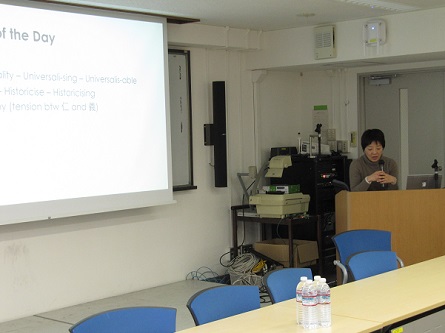
Maki Sato gave a fascinating presentation which is a integrated summary of all previous lectures and personal presentations presented during this Winter Institute. The first group of keywords is about universality. She discussed the universality of our current need and the possibility of universality as one kind of value. Then She mentioned the approach to the new universality, that is historicizing narrative as translation, which based on a process of open and transparent dialogue.
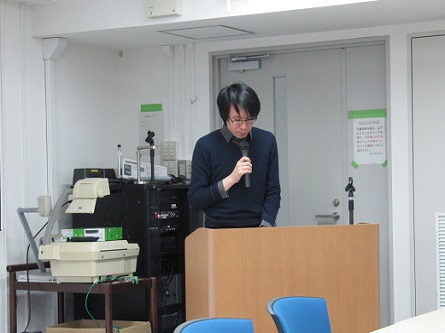
Qin Wang focused on the translation of the term “individual” in China and Japan. When Chinese intellectuals took the vocabulary “geren” from the Japanese translation “kojin” which are the same in Chinese characters (個人), it paradoxically gives rise to a political concept determined by a particular theoretical framework. This is to some extent shaped the development of China's form since the New Culture Movement.
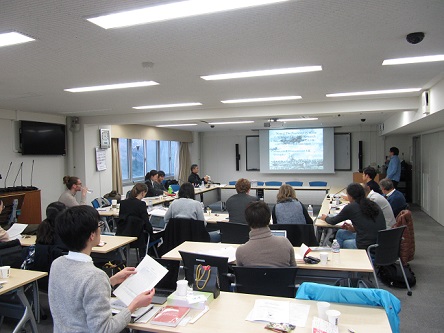
Jun Xie shared his thinking in the translation of Yoshimi Takeuchi. He mentioned four notes of Takeuchi’s writing to revisit the positionality of his Chinese studies (mainly about Lu Xun). Takeuchi’s own positionalities confronted with two kinds of institutionalization of knowledge assumed by traditional Sinology and the Chinese studies of Kyoto School. From Takeuchi’s case, Xie argued how can we fend off both Western universalism and national particularism, or if possible, a third way of critical area studies.
By Teng Hu






